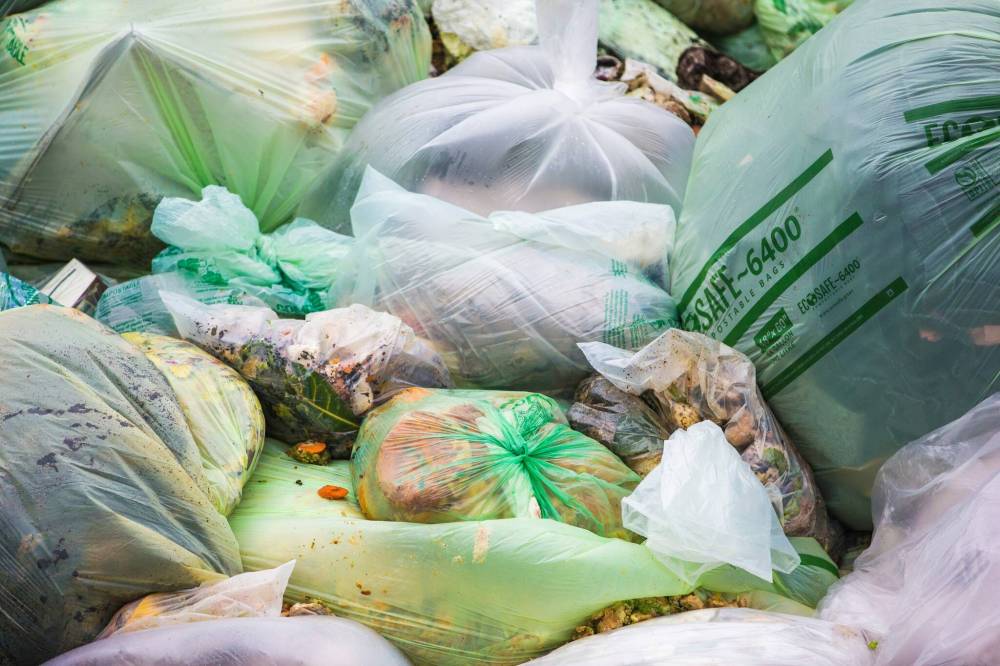Green carts still appear set to roll out to Winnipeg homes in 2030, though homeowners could start paying for the program years earlier and drop off their own food waste for composting within a few months.
Once the city works out the kinks on citywide organics collection, it will also consider reducing weekly trash pickups to once every two weeks.
The latest composting proposal comes from a long-awaited report on options to get curbside collection in place as early as mid-2026, though it concludes that target won’t be met.
Coun. Brian Mayes, head of the water, waste and environment committee, said he’s largely supportive of the proposed plan, which would require city council approval. Mayes stressed the environmental benefits of a green cart program have inspired his support, though he’d still like to see the service arrive sooner.
“I think it’s the right thing to do in terms of the great issue of our time: climate change and greenhouse-gas emissions,” said Mayes.

MIKAELA MACKENZIE / FREE PRESS FILES
The current proposal is to increase the waste diversion fee by $9 per household, starting Jan. 1, 2025, to begin raising money for green carts and kitchen pails five years before citywide compost collection is set to start.
City council previously rejected a call to start charging residents for composting years before they’d actually get the service. However, Mayes said he will support the current call to raise the waste diversion fee by $9 per household, starting Jan. 1, 2025, to begin raising money for green carts and kitchen pails five years before citywide compost collection is set to start.
“I’m at the stage where (I think) … Let’s get going on this, let’s start saving the money, let’s start doing the carts. I can live with that … the real costs are going to be considerably more,” said Mayes.
The $9 fee would be added to the annual waste diversion fee, which rose to $80 per home April 1.
The report does not specify the total increase each home will pay once a full curbside compost program is added.
Michael Gordichuk, the city’s manager of solid waste services, said it’s too early to estimate how much further the per household fee will rise once the full curbside compost program is in place. That’s partly because the city has not yet determined the type of compost processing facility it will hire a company to build and operate on its behalf.
Gordichuk said the call to speed up the start of compost collection to 2026 wasn’t feasible, since a compost facility is expected to take at least two years to design and build. He said Winnipeg is also trying to avoid any missteps in the new program.
“There’s a lot of steps that have to go in place … beforehand. We just want to make sure that we do a very meticulous review process,” said Gordichuk.
Last year, a consultant’s report suggested the compost facility alone could cost between $97 million and $149 million, depending on its construction model and technology.
Gordichuk said the city will also consider switching to less frequent garbage collection a few years into the composting program.
“Typically, with jurisdictions that have organics collection programs today, they do have biweekly garbage collection … It is a way to offset costs,” he said.
Gordichuk said other cities have found less frequent trash collection didn’t result in a surge of odour and pest complaints. Those problems are typically linked to organic materials that would no longer be mixed in with general trash, he said.
While Winnipeggers wait for curbside collection, the report suggests they could start dropping off their own compost at 4R Winnipeg Depots and up to 14 other locations. That could start within about four months of council approval, through a contract with Compost Winnipeg.
“Typically, with jurisdictions that have organics collection programs today, they do have biweekly garbage collection … It is a way to offset costs.”–Michael Gordichuk
That new program could help folks who haven’t been able to compost before, according to the organization that runs that service.
“There’s a huge appetite for Compost Winnipeg pickup service but it is more expensive, so there’s a lot of people that can’t afford it. And we get a lot of questions coming in (asking) if there is a (location to bring) compost to … I think (this is) a really great option for folks who either don’t have the money to pay for private collection or don’t have the ability to compost in their yards,” said Kristen Malec, senior compost and waste reduction program coordinator for the Green Action Centre.
Malec said the group is now working to determine where community drop offs should be located, with a goal to spread them throughout the city.
Winnipeg’s curbside organics collection program was originally expected in 2017 but was delayed multiple times, largely due to concerns over how much it would cost taxpayers.
joyanne.pursaga@freepress.mb.ca
X: @joyanne_pursaga

Joyanne Pursaga
Reporter
Joyanne is city hall reporter for the Winnipeg Free Press. A reporter since 2004, she began covering politics exclusively in 2012, writing on city hall and the Manitoba Legislature for the Winnipeg Sun before joining the Free Press in early 2020. Read more about Joyanne.
Every piece of reporting Joyanne produces is reviewed by an editing team before it is posted online or published in print — part of the Free Press‘s tradition, since 1872, of producing reliable independent journalism. Read more about Free Press’s history and mandate, and learn how our newsroom operates.
Our newsroom depends on a growing audience of readers to power our journalism. If you are not a paid reader, please consider becoming a subscriber.
Our newsroom depends on its audience of readers to power our journalism. Thank you for your support.